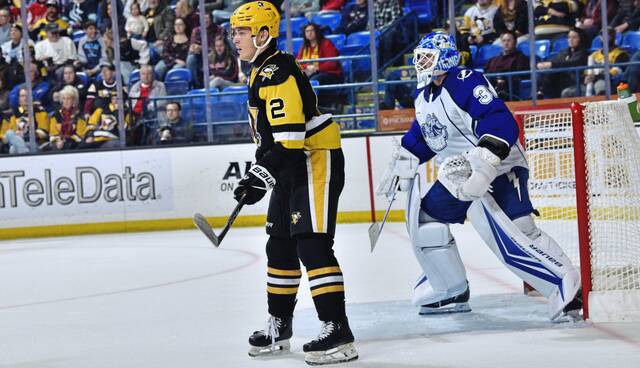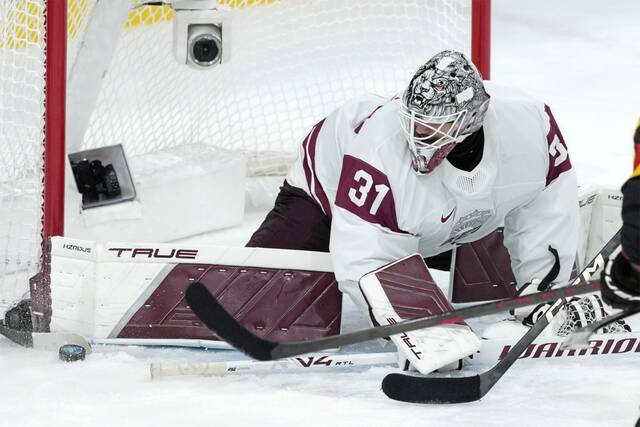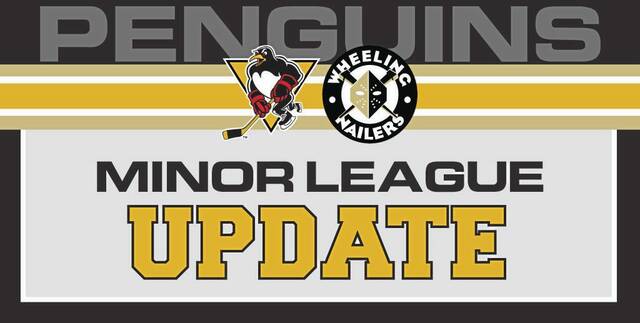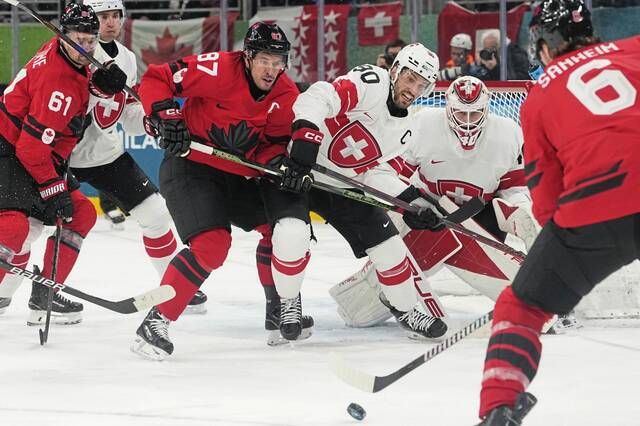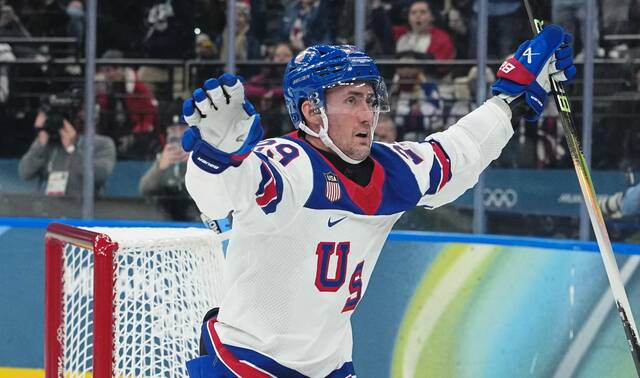“He’s probably scratched tonight.”
That was the warning a Columbus Blue Jackets media relations staffer offered to a Pittsburgh reporter inquiring about the availability of defenseman Scott Harrington on Nov. 29.
As his teammates conducted pregame interviews then shuffled off to takes showers, change into street clothes and head home for pregame slumbering, Harrington remained on the ice trying to refine a set of skills that haven’t been applied very often in situations of consequence.
A healthy scratch for 22 of a potential 30 games this season, prior to Thursday, Harrington is usually the last of his teammates off the ice. That was the case for his team’s morning skate prior to last month’s 5-2 win against the Pittsburgh Penguins at Nationwide Arena.
“It’s never fun when you’re not playing,” Harrington said. “It’s extremely frustrating. But I’ve dealt with that in the past. So I know how to approach it. Just try to get as much out of practice as I can, stay sharp. It is what it is. It happens to every player.”
It wasn’t supposed to happen to Harrington. At least not ideally when the Penguins selected him in the second round (No. 54 overall) in the 2011 draft. Harrington was one of several defensive prospects the Penguins, under former general manager Ray Shero, accrued in the late 2000s and early 2010s in hopes of creating a deep well of depth on the blue line.
In 2009, the team drafted Simon Despres and Philip Samuelsson in the first and second rounds, respectively. Along with Harrington, they chose Joe Morrow, with their first-round selection in 2011. Then, during the the 2012 draft, they selected Derrick Pouliot and Olli Maatta with first-round picks while also adding Brian Dumoulin in a trade.
Some of those bonds endure.
“I saw ‘Dumo’ just had a kid,” said Harrington, 26. “We’re all pretty grown up now. We all came in around the same time. There’s still a good chunk of guys on that team that I played with. When you play with guys, you always have a special bond with them. It’s even more significant with guys like (Dumoulin, forward Bryan Rust, Matt Murray) and guys that we started our professional careers with in Wilkes-Barre and figuring out what it means to be a pro. Learning on our own for the first time, simple stuff like that. Those make those bonds even more special. We all kind of grew up and became men together.”
Dumoulin and Maatta grew to become key contributors to championship success. Despres and Pouliot flamed out despite ample talent. And Morrow as well as Samuelsson never became regular NHL entities whatsoever.
Harrington hung on. And continues to do so.
Part of the blockbuster trade that brought all-star forward Phil Kessel to the Penguins in the 2015 offseason, Harrington went to a Maple Leafs team in the midst of a rebuild but never found a way to claim regular playing time with a squad light on NHL-caliber talent in because of injuries.
The following offseason, he was dealt to the Blue Jackets and found a regular place on the NHL roster, albeit without a regular spot in the lineup.
He played in only 22 games during the 2016-17 campaign and 32 contests in 2017-18. Despite such scarce usage, the threat of losing him on waivers led to the team only assigning him to their AHL affiliate once over those two seasons, and that was for conditioning purposes (for which waivers do not apply).
Last season was his finest in the NHL as he set career highs in games (73) and points (17). He also helped the Blue Jackets advance past the first round of the postseason for the first time in franchise history by appearing in 10 playoffs games and recording four assists.
Why has he found a fit — even if it’s an infrequent one — with the Blue Jackets?
“I don’t know, that’s a good question,” Harrington said. “I love it here. This is my fourth year. It’s been a blast. I love coming to the rink every day regardless if I’ve been in the lineup or not.”
His breakout last season prompted Columbus management to extend a three-year contract extension with a considerable salary cap hit of $1,633,333. For a player who has had something of a nomadic existence as an NHLer, the type of security or stability that contract can offer is a precious commodity.
“Yeah, it felt really good,” Harrington said. “To get a three-year deal, I was proud of myself. I was proud of how I worked — for many years, but in particular the three years that I had been in Columbus. Yeah, that felt great. It’s nice to have that. It’s just incentive to keep pushing.”
Harrington wasn’t the only one elated over getting a long-term contract. It gave his teammates, who watch Harrington toil relentlessly at his craft, a reason to celebrate, as well.
“Ohhhh, big time,” said Blue Jackets forward Nick Foligno, the team’s captain. “It just shows how our management views him and what they see. If you’re a guy that’s willing to work and do what’s necessary for the team, they’re going to reward you. I think he has done that. He’s never complained.
“I know it’s been a tough situation, but he’s never complained and just comes in here with a great attitude. We really respect him for that because when he steps on the ice, he’s going to give us everything that he has. That’s all you expect out of anyone. It’s a good lesson for a lot of guys in this room that get to play every day. That is a privilege. When he gets called on, he’s ready to go.”
Harrington hasn’t had many chances to go this season. Prior to Thursday, he had been limited to eight games and one assist, even despite considerable long-term injuries on the blue lines to incumbents such as Markus Nutivaara and Zach Werenski.
In some ways, he can be regarded as the Blue Jackets’ version of Penguins defenseman Chad Ruhwedel.
Trusted and valued but rarely deployed.
For his part, Harrington won’t dwell over when his next game will come but certainly will be prepared for when it does.
“I just have to focus on trying to develop my game every day and just working with the skill coaches and trying to stay on the ice as long as I can and stay sharp,” Harrington said. “You can kind of get in your own head if you try to worry about things out of your control. That’s what I can control, and that’s all I worry about.”



